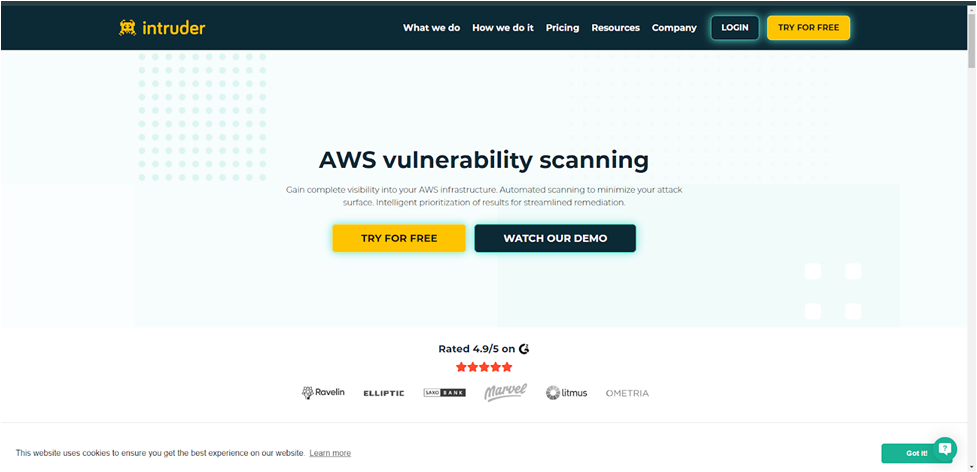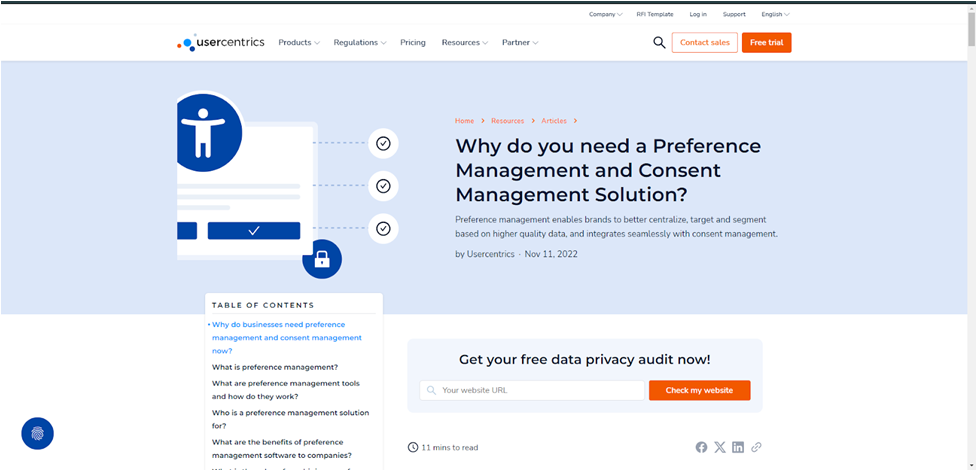Data is an indispensable tool in today’s digital space. Everyone is talking about it. Businesses of all sizes are investing massively in data management and leveraging its potential to outpace their rivals. What does it mean? The extent to which you can explore and exploit data determines the success of your business in the digital economy.
However, cyber crimes have become the new normal, ravaging the digital space and causing businesses to fall into ruins. In 2022, over 300,000 phishing attacks were recorded in the United States with about 27,000 cases of data identity theft. Worse still, the numbers are rising incessantly.
Now that cyber-criminals have become a sour nuisance, you must ensure data privacy becomes a top priority in your business strategies and operations. This will safeguard your business from cyber-attacks and help you gain customer trust and loyalty.
This article will guide you through six tactical approaches to data privacy and how they will benefit your customer relationship management operations. Keep reading to learn more.
How to airtight your data privacy and security
When data breaches occur and sensitive customer information gets leaked, cybercriminals use this data to perform all forms of illegal activities that can wreak havoc on your business reputation. This can break years of customer loyalty and trust and could ultimately crumble your business in no time. I bet you don’t want that!
To help you scale through, I have curated these surefire technological approaches and organizational steps that can ensure the security of your customer data.
1-Leverage Amazon Web Services Vulnerability Scanning
Phishing attacks are the most prevalent form of cybercrime. They are dependent on vulnerabilities that exist on your cloud surface. As such, it only makes sense to incorporate AWS vulnerability management as a defense strategy to detect these vulnerabilities, identify misconfigurations, and resolve threats that may exist in your adopted cloud.
- With vulnerability management scanners, you can easily automate a continuous scanning process across your AWS cloud infrastructure, web applications, and API endpoints to detect and neutralize emerging threats proactively.
- Again, vulnerability scanners are highly efficient risk management software solutions in that they can provide you with a comprehensive analysis of the severity levels of all imminent threats to your cloud. With this, you can make budgets for the most pressing vulnerabilities that can lead to a major catastrophe.
Overall, AWS vulnerability management practices keep you many steps ahead of cyber threats like phishing attacks and other data breaches dependent on loopholes in your adopted cloud. By identifying and predicting possible attacks, you can facilitate a more resilient digital network.
2-Introduce preference management practices
Times have changed and customers are becoming more attentive than ever. They want to be kept up-to-date on what their personal information is being used for, who has access to them, how they’re being stored, and to what extent their data can be collected.
By introducing preference management tools to the equation, customers can have full control over their personal information, and they get to decide the kind of information they deem fit to give out. This shows your business’s transparency and builds customer trust and loyalty.
- Preference management systems pave the way for an enhanced customer-centric experience. As customers are the most important element of the whole process, you get to familiarize yourself with them and obtain first-hand hints about where their interests lie.
- Preference management tools are designed to aid compliance with data privacy regulations like GDPR and CCPA. It allows you to gather data based on customer preferences and legal requirements.
Overall, preference management platforms help your customers get a grip on their data and allow you to respect their privacy decisions while offering them a tailored and personalized user experience.
3-Choose a reliable CRM provider
You can’t risk getting this wrong. Choosing a trustworthy CRM platform is a fundamental security practice for ensuring data privacy.
A good CRM provider has a strong commitment to data management in that they come with privacy protocols like data encryption. This simply transforms your data from plaintext to ciphertext, making it accessible to only individuals with the right decryption key and that’s not all.
You have a lot more to gain from encrypting your data: Some of which are,
- Confidentiality: Just as you find it difficult to make meaning out of foreign text languages, individuals who access encrypted data will find it indecipherable without the decryption key. This keeps your file safe from intruders, data breaches, and other unauthorized viewing access.
- Secure data transmission: Cybercriminals often intercept data transmission over networks to steal sensitive data. However, communication protocols like TLS/SSL can encrypt your data and protect it while in transit.
And there’s more from where that came from. Other benefits include data-at-rest protection, compliance with data privacy regulations, risk mitigation and what have you. So, it’s up to you to find your facts and figures before deciding on a CRM provider.
4-Collect only important data
Before proceeding to collate data, ensure you strike out irrelevant details from your overly long list and leave only those vital data points that are relevant to your business. Ask yourself questions like;
- What is the objective of the data collection?
- Which data point should be prioritized and which should be marked optional?
- If we decide to expunge this data point, would it influence how we operate in any way?
When you focus on collecting only the important customer data, it can benefit your business in multiple ways such as,
- Reducing the complexity of data management: it streamlines data management processes, eliminating the extra bit of stress of having to process large amounts of irrelevant data and reducing operational costs of data storage and management.
- Enhancing data accuracy and quality: collecting vital customer data eliminates risks of inconsistencies, duplicates, and outdated information. This paves the way for higher quality data and making better-informed data-driven decisions.
- Minimizing legal and reputational risks: focusing on crucial data points reduces the likelihood of legal and reputational risks associated with cyber-attacks or data theft. This safeguards your business credibility and potential damage to customer trust.
What’s more, adopting a lean approach to data collection can benefit you in other ways like compliance with data regulations, personalized customer experience, and reduced cost of operations. These results help your business optimize the value of your data asset.
5-Restrict data access
The fact that your employees partook in the data collation process doesn’t mean they should be granted access to your database. They don’t need the same level of access as you do.
Cutting down the number of people who can access customer information to a selected few is a major step in reducing your points of vulnerability against cyber attacks. Additionally, it can;
- Enhance data governance: it allows you to enforce policies and procedures associated with managing access permissions, data usage, and user roles alike. With this, you can ensure data integrity and uniformity in your business
- .Increase employee productivity: data overload can lead to confusion and reduced efficiency of employees. However, limiting data access helps to streamline workflows, allowing employees to focus only on data relevant to their roles.
- Enhance trust and credibility: customers and stakeholders want a reputable business to deal with. By restricting access to data, you demonstrate a commitment to securing their information from unauthorized access. This fosters customer loyalty and enhances the credibility of your business.
Overall, implementing strict access control systems is one of the basic ways of ensuring data privacy in CRM. It allows you to keep a tab on organizational data, granting access as and when due to only authorized personnel and ultimately preventing risks of data breaches.
6-Organize cybersecurity training programs
If you want to heighten the security standards of your organization against cyber attacks, you must educate your employees about the need for data privacy and security and the most proactive way to do that is by hosting cyber security training sessions and workshops.
This training may feature sessions about best practices for data handling, password creation, common forms of cyber attacks, best login practices and what have you. All of these and more to create a proper CRM security awareness and most importantly, imbibe the culture of data management.
How do I go about these? You may be curious.
- Start by comparing and contrasting the knowledge gaps of your employees about cyber security. This will help you come up with ideal training materials that meet the specific needs of different employees.
- Be flexible with your training methods to accommodate different learning styles and individual preferences. From online courses to in-person workshops and real-world case studies that facilitate interactive learning, adopt varied formats to help retain important concepts.
When all is said and done, ensure you assess the efficacy of your cyber security training programs through feedback and surveys. Finally, use the insights you get to identify areas begging for improvements and act accordingly.
Take it up a notch and become invincible against cyber threats
Every business depends on customers’ trust and loyalty so you can’t risk damaging your reputation through cyber attacks. Rather than leaving the security of your customer database to chance, it’s time to level up your game with the insights you gained so far.
There you have it, six tactical and organizational approaches that can help you enhance your customer relationship management through data privacy.
 Rilwan Kazeem is a creative writer and lover of art. He has worked in social media, content marketing, and SEO for four years. He has covered topics including digital marketing, HR, emerging technologies, and their intersection with business. Rilwan’s writing has been featured in Leaderonomics, Engagedly, and Newsbreak—where he unraveled “10 simple steps to launch an online business in 2023”, among others.
Rilwan Kazeem is a creative writer and lover of art. He has worked in social media, content marketing, and SEO for four years. He has covered topics including digital marketing, HR, emerging technologies, and their intersection with business. Rilwan’s writing has been featured in Leaderonomics, Engagedly, and Newsbreak—where he unraveled “10 simple steps to launch an online business in 2023”, among others.





